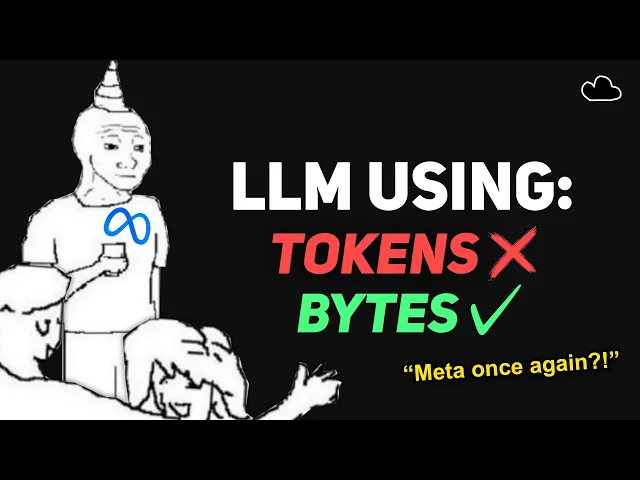What If We Remove Tokenization In LLMs?

Detokenization may redefine AI's future
In the rapidly evolving landscape of artificial intelligence, large language models (LLMs) have become the cornerstone of modern AI applications. A recent exploration by Tim Dettmers delves into a provocative question that could fundamentally reshape how we build these models: what if we removed tokenization from LLMs entirely? This seemingly technical question carries profound implications for the future capabilities, efficiency, and inclusivity of AI systems that businesses increasingly rely on.
Key Points
- Tokenization—the process of breaking text into chunks for LLMs to process—creates artificial barriers that limit models' understanding of languages, especially non-English ones
- Direct character-level models theoretically offer substantial advantages in cross-lingual capabilities and reduced biases, though they come with significant computational challenges
- Recent innovations like position interpolation and FlashAttention make character-level models increasingly viable by drastically reducing computational demands
The Fundamental Limitation We've Overlooked
The most compelling insight from Dettmers' analysis is how our current tokenization approach represents an artificial constraint that we've simply accepted as necessary. Most LLMs process text by breaking it into tokens—words, subwords, or character combinations—rather than individual characters. This design choice was originally made for computational efficiency, but it has created profound limitations.
This matters tremendously in today's global AI deployment context. Current tokenization schemes heavily favor English and similar languages, creating what amounts to a form of technological colonialism. Non-Latin script languages like Thai, Arabic, or Japanese suffer from inefficient tokenization that requires more tokens to express the same concepts. The business implications are significant: companies deploying AI solutions globally face inconsistent performance across markets, with higher costs and lower quality in non-English environments.
Beyond the Video: Real-World Impact
What Dettmers doesn't fully explore is how tokenization inequality manifests in practical business scenarios. Consider a multinational corporation deploying customer service AI across global markets. Their English-language deployment might run efficiently with coherent responses, while the same system in Thai requires significantly more tokens to express identical concepts, resulting in both higher API costs and potential quality degradation as context windows fill faster.
This disparity creates an uneven playing field for businesses operating in different linguistic regions. A startup building AI solutions in
Recent Videos
How To Earn MONEY With Images (No Bullsh*t)
Smart earnings from your image collection In today's digital economy, passive income streams have become increasingly accessible to creators with various skill sets. A recent YouTube video cuts through the hype to explore legitimate ways photographers, designers, and even casual smartphone users can monetize their image collections. The strategies outlined don't rely on unrealistic promises or complicated schemes—instead, they focus on established marketplaces with proven revenue potential for image creators. Key Points Stock photography platforms like Shutterstock, Adobe Stock, and Getty Images remain viable income sources when you understand their specific requirements and optimize your submissions accordingly. Specialized marketplaces focusing...
Oct 3, 2025New SHAPE SHIFTING AI Robot Is Freaking People Out
Liquid robots will change everything In the quiet labs of Carnegie Mellon University, scientists have created something that feels plucked from science fiction—a magnetic slime robot that can transform between liquid and solid states, slipping through tight spaces before reassembling on the other side. This technology, showcased in a recent YouTube video, represents a significant leap beyond traditional robotics into a realm where machines mimic not just animal movements, but their fundamental physical properties. While the internet might be buzzing with dystopian concerns about "shape-shifting terminators," the reality offers far more promising applications that could revolutionize medicine, rescue operations, and...
Oct 3, 2025How To Do Homeless AI Tiktok Trend (Tiktok Homeless AI Tutorial)
AI homeless trend raises ethical concerns In an era where social media trends evolve faster than we can comprehend them, TikTok's "homeless AI" trend has sparked both creative engagement and serious ethical questions. The trend, which involves using AI to transform ordinary photos into images depicting homelessness, has rapidly gained traction across the platform, with creators eagerly jumping on board to showcase their digital transformations. While the technical process is relatively straightforward, the implications of digitally "becoming homeless" for entertainment deserve careful consideration. The video tutorial provides a step-by-step guide on creating these AI-generated images, explaining how users can transform...
